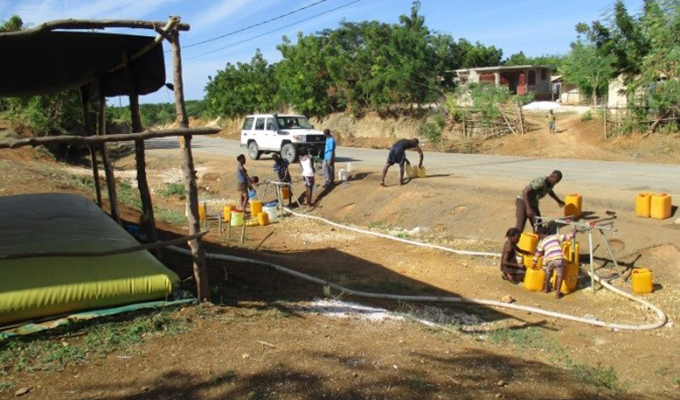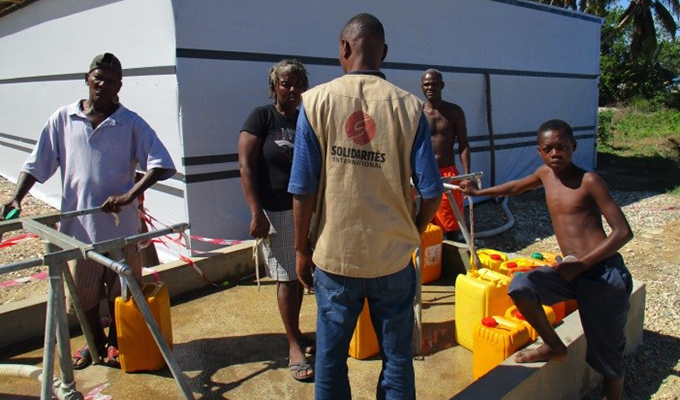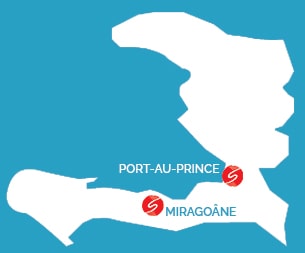Providing an emergency response to unsanitary water by setting up equipment, rehabilitating or constructing spots and preventing water-borne diseases; are the three objectives of SOLIDARITÉS INTERNATIONAL’s programme in the Nippes region, devastated by hurricane Matthew in October 2016. Beyond providing drinking water to populations, the real goal is to reduce the risk of a cholera outbreak.

Water trucking / crédit : Solidarités International
Everyday 100,000 litres of water supplied by water-trucking
During the days following hurricane Matthew, SOLIDARITÉS INTERNATIONAL teams provided in emergency drinking water to the hurricane victims. “5 water-points have been set up in several municipalities. In total, these trucks delivered more than 100,000 litres of water per day to 7,000 people”, explains Pierre Desvillette, Water, Sanitation and Hygiene Coordinator for SOLIDARITÉS INTERNATIONAL in Haiti.
Now that several water systems have been repaired, some of these temporary structures have been dissembled. However, other tanks are still running today, such as at the Dupuy health center. “5,000 litres of water are delivered every day and provide doctors and patients with access to water”, Pierre Desvillette tells.
Treating water is the priority
Providing water by water trucking is unfortunately not sufficient to cover the needs of Haitian people in the Nippes in the long term. Therefore, long lasting solutions have been imagined and implemented by our teams, in particular the construction of a water purification station. “Two stations were constructed urgently a few weeks after Matthew. They produce 500 litres of drinking water per day, allowing 1,350 people to drink 15 litres of clean water per day, per person.”
 Station de potabilisation / crédit : Solidarités International
Station de potabilisation / crédit : Solidarités International
Rebuilding damaged infrastructures
In Haiti, drinking water systems were strongly affected by the 2010 earthquake. After hurricane Matthew, a large proportion of these already weakened infrastructures were damaged once again. “In the last 4 months we have identified 4 drinking-water systems that needed rehabilitation, with the help of the Haitian agency for water (DINEPA). We started the restoration that is expected to last several weeks. Meanwhile, we set up 38 chlorination locations in risky water points. This systematic chlorination prevents the spread of water-related diseases, such as cholera and diarrhoea.”
Hygiene, a barricade against cholera
“After Matthew, the population sought refuge in communal shelters, particularly in schools where sanitation installations weren’t adapted to such an amount of people, says Pierre Desvillette. Therefore, we are going to disinfect and rehabilitate these school latrines, install washbasins and provide hygiene awareness sessions to students and professors.” Chlorination of unclean water to make it drinkable is essential in the fight against water-related diseases. With the right sanitary conditions, they can stop diarrhoea and cholera outbreaks.
Haiti
Context and action- 11.84 million inhabitants
- 163rd out of 191 countries on the Human Development Index
- 110.215 people helped

